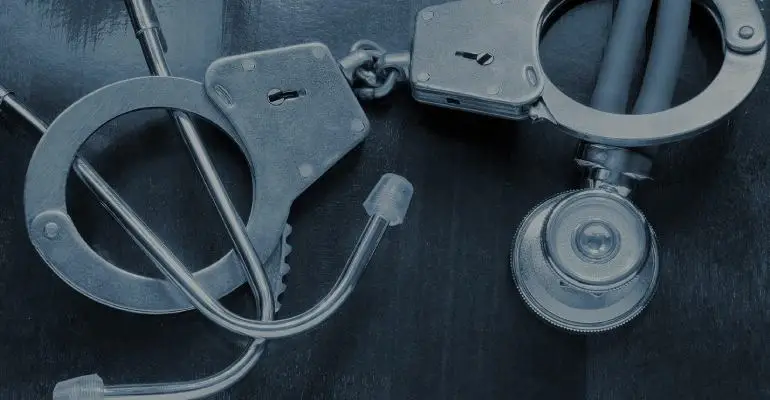How to File a Whistleblower Complaint

When to File a Whistleblower Complaint
The time frame for filing a whistleblower complaint varies from 30 days to 180 days, depending on legislation. According to OSHA, “the time frame for filing a complaint begins when the adverse action, such as a firing, occurs and is communicated to the employee.”
Due to these short statutes of limitations, it is advisable to consult with an employee rights attorney as soon as possible after the retaliation. They can advise and assist with the whistleblower complaint to make as strong of a case as possible.
Where to Go
The Occupational Safety and Health Administration (OSHA) is the federal agency that handles the vast majority of whistleblower complaints. OSHA lists 20 plus statutes that cover varying forms of retaliation, and each of them has a different time frame for deadlines in filing a claim. Some of the legislation administered by OSHA includes:
- Consumer Financial Protection Act (CFPA)
- Sarbanes-Oxley Act (SOX)
- Clean Air Act (CAA)
- Section 11(c) of the Occupational Safety and Health Act (OSH Act)
- Surface Transportation Assistance Act (STAA)
- Affordable Care Act (ACA)
There are also numerous other whistleblower protections that are not administered by OSHA and would not require a filing with OSHA, such as the Florida Private and Public Whistleblower Acts.
What You Need

- Copies of relevant documents related to your case such as letters, meeting notes, text messages, emails, activity logs, work orders, phone records, or other documentation that is legally acquired
- Documentation of additional complaints that are relevant to your claim
- Copies of disciplinary actions and hiring and termination letters
- Documents of other proceedings including EEOC complaints
- Names, titles, and contact information for the individuals who made the decisions detailed in the whistleblower retaliation complaint
- Copies of your last five pay stubs
- Other relevant materials
As mentioned above, it is not required to have all of these, but obtaining and retaining what you can to support your claim will improve your chances of success.
Ways to File
OSHA offers several options to file a whistleblower complaint. These include:
- Using the online whistleblower complaint form
- Calling your local OSHA Regional or Area office on the telephone to discuss your complaint
- Visiting the local OSHA Regional or Area office in person
- Using email, mail, or fax to send your whistleblower complaint, including your name, address, email, and telephone number so officials can follow up with you
What Happens After You File
After the whistleblower complaint is filed, there will be an interview to discuss the information to determine if an investigation is needed. When a strong case is filed in the beginning, this will increase the likelihood of an investigation. If OSHA decides that an investigation should occur, they will move forward with the review and contact the employer and witnesses if needed. The investigation will be thorough, and they may contact you with requests for additional information.
If the evidence supports that there was, in fact, retaliation, the possible outcomes include job reinstatement, back pay, and benefits, as well as additional remuneration if appropriate.
Remain Diligent and Patient
Thorough investigations can take some time, so it is important to remain diligent and patient. If the investigators request more information, be sure to follow up with them promptly to move the process along. Remaining calm and patient throughout the process will help to reduce your stress levels while you are waiting for a decision.
As mentioned above, having the most robust case with supporting information to back up the claim when it is filed makes a significant difference in the outcome. Consulting with an employment law attorney before initiating the complaint process or at least in the very early stages can help you make the best legal decisions for your situation.
Doing the right thing by reporting unsafe or illegal activity by an employer is not easy. But whistleblowers serve a crucial role in both the private and the public sectors. Whistleblowers have the right not to be retaliated against for doing the right thing, and legislation that is in place o protects your rights, your career, your financial future, and your family.
Please Note: At the time this article was written, the information contained within it was current based on the prevailing law at the time. Laws and precedents are subject to change, so this information may not be up to date. Always speak with a law firm regarding any legal situation to get the most current information available.
Related Posts
Recent Posts
- False Claims Act Retaliation & Your Rights
- Fired for Being Pregnant? 5 Situations When You Should Call an Employment Lawyer
- Can My Boss Take My Tips? The Laws of Tip Ownership
- What Does “Meets FCRA Requirements” Mean?
- Can Your Employer Contact You While on Medical Leave? Know Your FMLA Rights in Florida
Contact Us

FREE HELP GUIDES
Dealing with unpaid wages, discrimination or wrongful termination? Get the information you need to protect your workplace rights. We offer employment law resources to help you fight for workplace justice.


